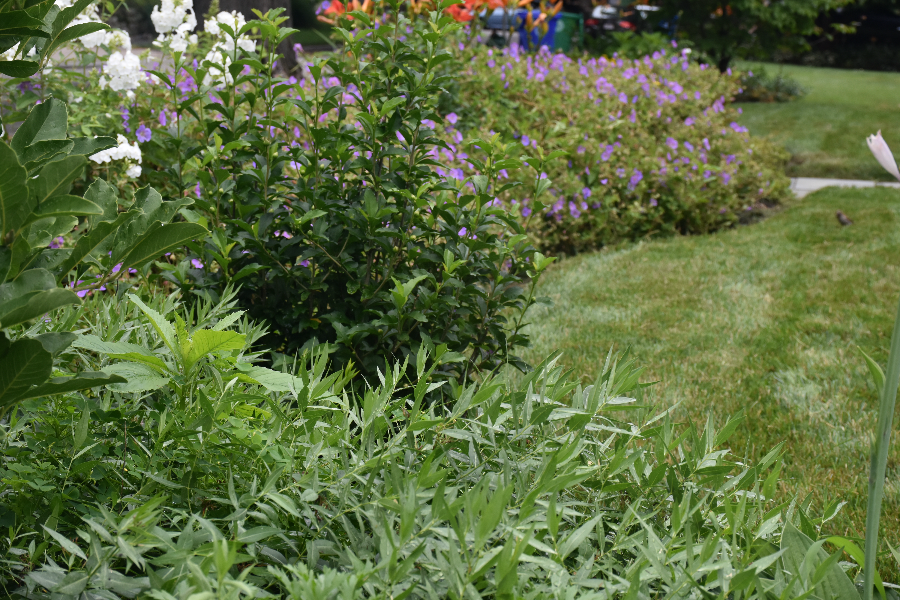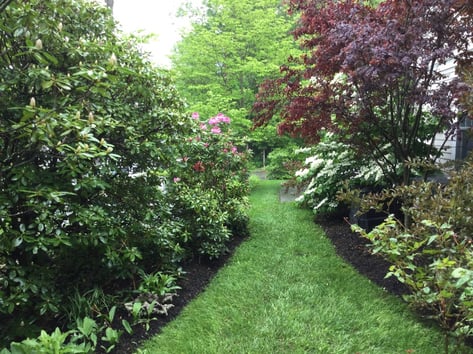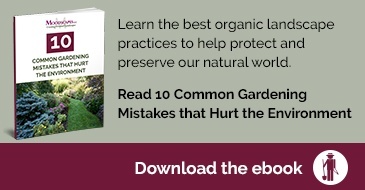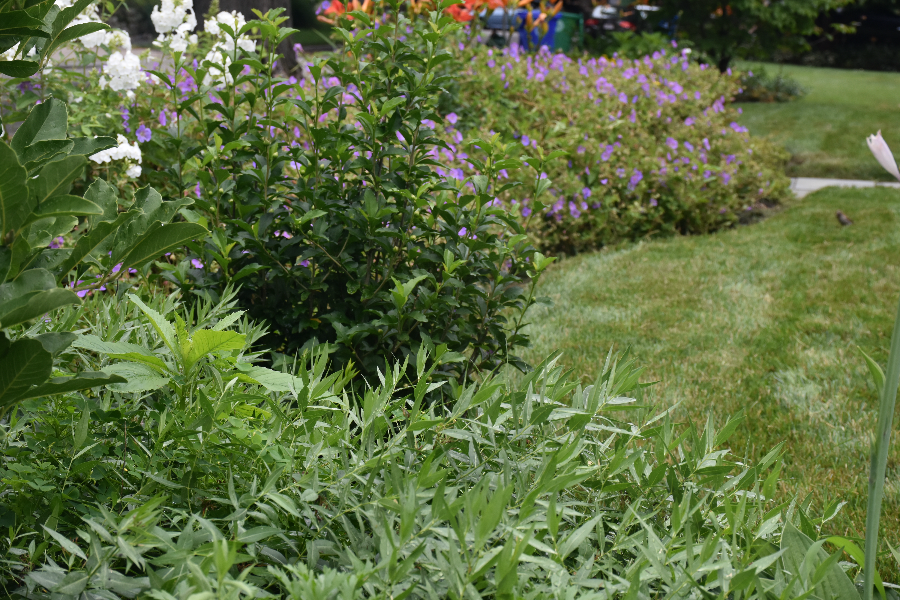Gardening in general and organic gardening specifically are growing in popularity as an increasing number of homeowners are becoming aware of the benefits. The pandemic, economic uncertainty, and the rising cost of food coupled with a desire to help the environment while spending time outdoors engaged in a fun, stress-reducing activity all have contributed to an interest in planting and raising flowers for beauty and fruits and vegetables for the table.
As awareness and concern over climate change and the harmful effects of pollution have grown, many gardeners are turning to organic methods for a healthier, less damaging approach to gardening.

What is organic gardening?
The short answer is organic gardening is gardening without synthetic fertilizers and pesticides. But organic gardening is much more than simply replacing manmade chemicals with those from natural sources. It’s a philosophy of gardening that supports the health of the whole ecosystem. In an organically managed yard or garden the emphasis is on cultivating an ecosystem that sustains and nourishes plants, soil microbes and beneficial insects rather than simply making plants grow.
Creating this ecosystem begins with having a complete understanding of your landscape and its various microclimates. Virtually every property contains several distinct areas with different amounts of sun, shade, moisture, and exposure to wind – by analyzing these microclimates, you can determine what plants will grow best and where.
Next, you’ll want to analyze your soil by getting a soil test from your local university agricultural extension. The test will tell what nutrients and micronutrients you have in your ground, and the structure and type of soil you have. This information will help you understand what kind of plants you can grow, how good your drainage is, and what amendments you'll need to make to support healthy plant growth.
Chances are good you’ll need to make some improvements to your soil based on your test results. Adding organic matter by mixing compost into the soil increases its capacity to retain water and nutrients and supports beneficial microbes, which are essential to healthy plant growth. Compost can be made at home from grass clippings, leaves, yard debris, and kitchen scraps, or purchased from garden centers and mulch suppliers.
Organic gardening at home
As you begin to build the foundation for organic gardening by improving your soil, it’s important to note that while compost and organic matter will increase your soil’s ability to hold nutrients, they do not supply enough nutrients to meet most plants’ needs. To make up for the nutrient gap, organic gardeners can apply fertilizers derived from natural deposits such as biochar, rock phosphate, and plant products like seaweed and wood ash.
These four ideas will help make your adventure in organic gardening more productive and enjoyable:
1. Get the right tools
For a simple garden and lawn, you won’t need a tremendous number of tools. For regular upkeep, you’ll want a rake, some hand tools like a weeder, spade, trowel, and a pruner, a wheelbarrow or cart, and a lawnmower. Generally speaking, a rake is preferable to a leaf blower as a blower not only kicks up leaves but contaminants that could be hazardous to breathe. Soaker hoses or drip systems can ensure that your garden’s temperature and moisture levels remain consistent and controlled, increasing the chances that you’ll have happy and healthy plants.
A reel push mower is best for cutting grass as long as the blades are sharp, but it may not be practical for larger lawns. Unless you have a really big yard, a riding mower is unnecessary and uses considerably more natural resources than a reel, gas, or electric push mower. If you need more power than a reel push mower, an electric mower is a good option that doesn’t use gasoline. One thing about mowing your lawn, be sure you are cutting high.
2. Choose native and noninvasive plants
Native plants, those that are indigenous to your local area or climate zone, are adaptable to the local environment and will thrive in it. These plants typically require less work than non-natives in most cases, although maintenance varies from species to species. The benefits of using native plants in your home garden can be extensive, including:
- They bring in pollinators that are good for the local ecosystem
- They provide seeds, nuts, and fruits for squirrels and other mammals
- Native garden design tends to be more sustainable, as it uses fewer natural resources that are not necessarily abundant in the area
3. Use plant based and naturally occurring materials in your garden
It’s important to choose the right type or combination of organic nutrients and fertilizers for your garden. Some products may be entirely plant-based or animal-based. Others may include a combination of plant-, animal-, and mineral-based ingredients.
4. Create a maintenance schedule
Maintenance is about wanting everything to thrive as a plant community. You want to make sure weeds and invasive plants are not overtaking your garden so a regular weeding, thinning and pruning schedule along with the addition of organic nutrients and watching out for the introduction of harmful insects and disease is important.
Think about what plants you have and your climate, and then use that information to make a consistent watering schedule. This will help you limit the amount of water you use while maintaining an optimal moisture level.

Do what you can. Get outside help for the rest.
Everybody has their limitations. Whether it’s time, money, skill, or interest, it’s important to know when to ask for help from an experienced organic landscape company. They can help you from the very beginning by performing soil tests, creating a plan and implementing it, or they can just come in periodically to help with the heavy work. How much assistance you need will depend on your time, budget, and needs.
Here at Moodscapes, we’ve been creating organic landscaping solutions for decades and would be excited to help you create the sustainable garden of your dreams. If you’re looking for help, give us a call, and we’ll help you come up with the perfect organic solution.
At Moodscapes, we use environmentally-safe best practices and materials designed to bring out the best in nature and enhance your outdoor living experience. To learn more, contact the organic landscaping specialists here at Moodscapes.





